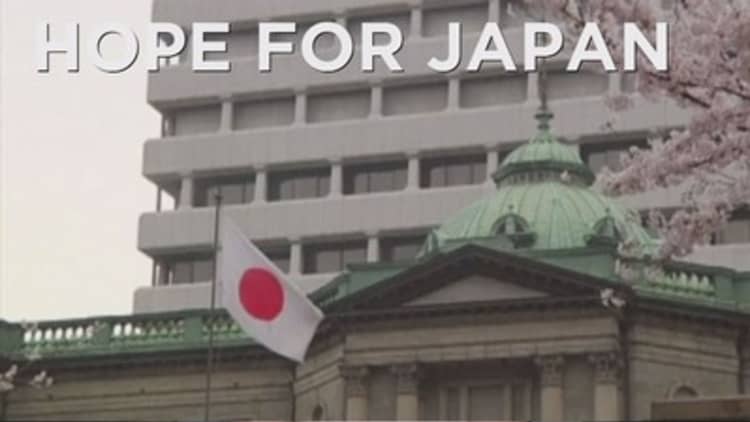Japan's core machinery orders unexpectedly rose in April at the fastest pace in four months, in a sign companies are turning more optimistic about business investment as domestic demand strengthens.
The 3.8 percent month-on-month rise in core orders, a highly volatile data series seen as an indicator of capital spending in the coming six to nine months, compares with the median estimate of a 2.0 percent annual decline and follows a 2.9 percent increase in March.
Improving business confidence and record corporate profits suggest that companies have the capacity to expand investment as long as domestic demand holds steady, which is essential to driving a virtuous cycle of more robust economic growth.

"Capital expenditure is headed in the right direction, reflecting an improvement in domestic demand," said Shuji Tonouchi, senior fixed income strategist at Mitsubishi UFJ Morgan Stanley Securities.
"The broad economy should be able to maintain stable growth, which will be a relief for policymakers."
Orders from manufacturers rose 10.5 percent in April from the previous month, the fastest increase in nine months due to gains from auto and electronics manufacturers, Cabinet Office data showed on Wednesday.
Orders from the services sector fell 0.6 percent versus a 4.7 percent increase in the previous month due to lower spending on communications equipment
Compared with a year earlier, core orders rose 3.0 percent, versus the median estimate for a 1.3 percent annual decline.
Read MoreJapan's first-quarter GDP revised sharply higher
The Cabinet Office raised its assessment of machinery orders, saying they are recovering.
The data comes after first-quarter gross domestic product growth was revised up due to robust gains in capital expenditure.
Japanese manufacturers' sentiment improved in May and the service-sector's mood rose to its highest level in a year due to healthy consumer spending, the Reuters tankan survey showed.
Positive economic momentum could benefit the Bank of Japan, which is trying to guide inflation to its 2 percent price target in the first half of fiscal 2016 with its massive quantitative easing program.

